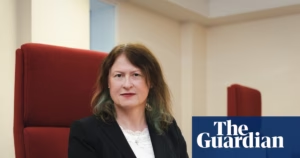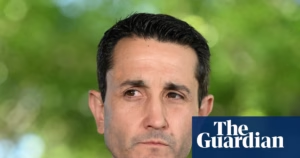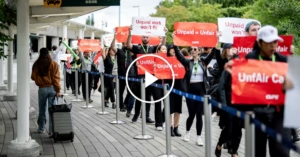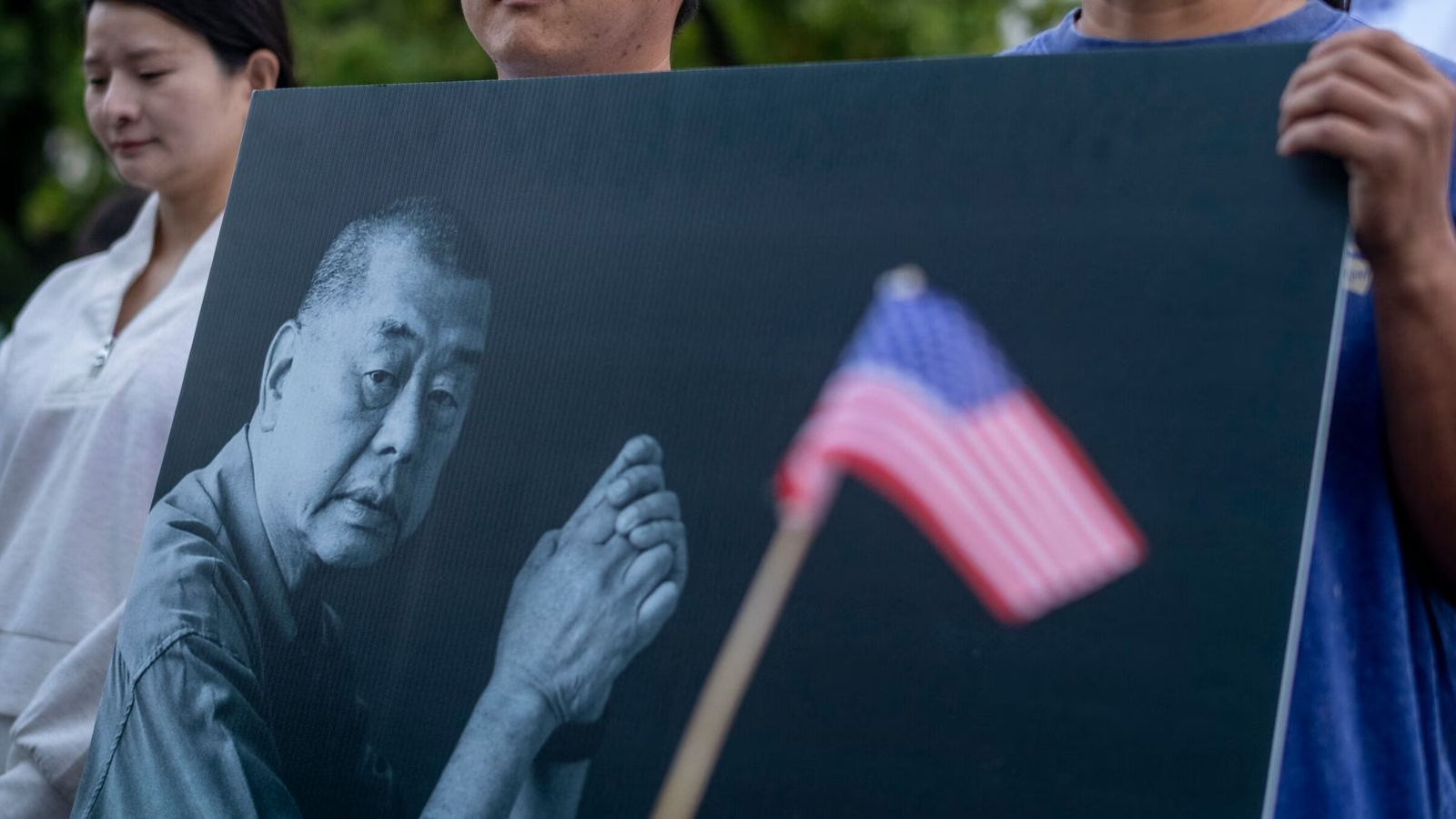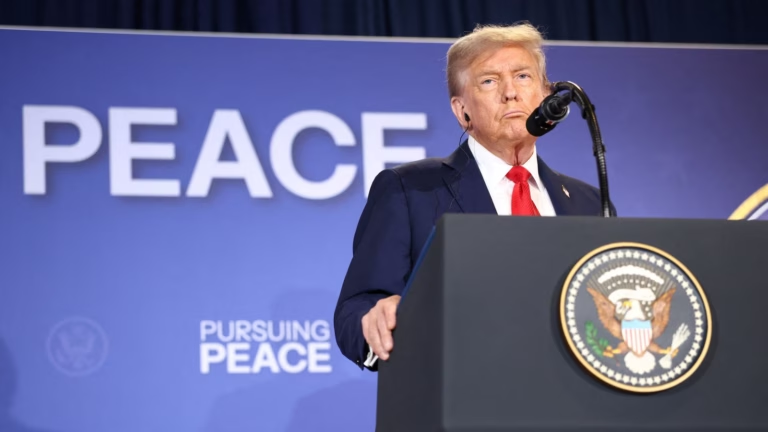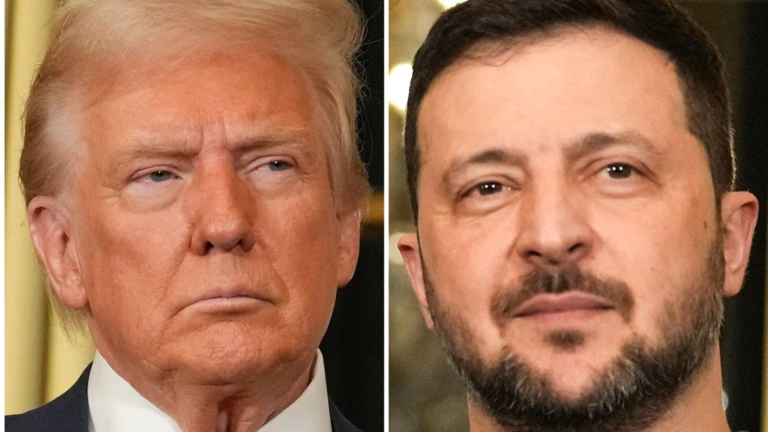The hustle still exists in Hong Kong, but its tone is not the same. A city once famous for its protest, now simply doesn’t dare.
A city once famous for its protest, now simply doesn’t dare.
Just a few years ago it would have been hard to imagine a court case as high-profile as that of Jimmy Lai without at least a handful of supporters and placards in sight. Yet, the courtroom seen here did not warrant even a single onlooker for the trial of one of Hong Kong’s most well-known pro-democracy figures.
But as closing arguments began in the trial of one of the city’s most well-known pro-democracy figures, there was not a hint of dissent in sight.
Now Lai’s son, Sebastian, who advocates on his behalf, has said that the treatment of his father will have dire implications for Hong Kong “as a a financial centre”, and has warned the British government (of which Lai is a citizen), that if it fails to act “my father is most likely going to die in jail”.
Jimmy Lai has been described as the most famous prisoner of conscience anywhere in the world.
He is an iconic figure within Hong Kong’s pro-democracy movement and is one of the most high-profile people to be charged under Hong Kong’s controversial national security law.
The self-made millionaire, lifelong critic of Beijing, and the owner of pro-democracy newspaper Apple Daily is accused of colluding with foreign forces and publishing seditious material.
After a five-month adjournment, closing arguments in his trial will get under way in earnest this week.
There is a sense here that authorities have found this trial a little tricky to resolve.
How to handle an elderly man who some believe has become emblematic of a cause? How to balance significant international criticism with the city’s desire to assure the world it is just, fair and back open for business?
His family and lawyers believe this partly explains the multiple, lengthy adjournments.
Lai’s son, Sebastian, has spent years advocating for his father from London. He has not seen him in nearly five years.
“The worst-case scenario is that he dies in prison,” he says.
It is a legitimate concern. Lai has spent over 1,600 days in solitary confinement. He is 77 years old and diabetic.
Indeed, on Friday, the first day of the resumed court activity was taken up by discussions about his health and the court was then adjourned so he could be fitted with a heart rate monitor.
“In Hong Kong, it’s a concrete cell which gets up to 30, 40C and he bakes in there essentially,” says Sebastian.
“So we’re incredibly worried about him, and all of this in the last four years was aimed to break him, to break his spirit.”
‘If he dies, that’s a comma on Hong Kong’
Sebastian insists his father’s death would not just be a personal tragedy, but a huge problem for both the Hong Kong authorities and Beijing’s government.
“You can’t tell the world you have the rule of law, the free press and all these values that are instrumental to a financial centre and still have my father in jail,” he says.
“And if he dies, that’s it, that’s a comma on Hong Kong as a financial centre.”
It’s criticism that the authorities in Hong Kong are acutely aware of.
Indeed, the government there has insisted in a statement that the city’s “correctional facilities are humane and safe” and said that claims to the contrary are merely “external forces and anti-China media” working to “glorify criminal behaviour and exert pressure on the courts”.
But Lai is also a British citizen and there is a sense his family believes successive UK governments have failed in their duty to support him. Petitioning is a journey Sebastain describes as “heartbreaking”.
Meanwhile, the mainland Mandarin language is more commonly heard in the streets and slogans and banners extolling causes favoured by Beijing are not hard to find.
In today’s Hong Kong, stances are staked in quiet acts of compassion, such as committed visits to friends behind bars.
‘Don’t ever second-guess Beijing’
It’s on one of these trips we accompany Emily Lau, a former Hong Kong lawmaker and pro-democracy supporter.
“It’s very important to show the people inside that they have not been forgotten,” she explains, as she climbs into one of Hong Kong’s iconic red taxis.
“It’s my way of showing my support.”
She visits Dr Helena Wong, a fellow member of the Democratic Party, and one of the so-called ’47’ – 47 activists tried together for conspiracy to commit subversion.
Her key offence was standing in an unofficial primary election.
Lau is upbeat as we chat, but also frank about the state of democracy in her city.
“It’s very difficult. Now it seems you cannot demonstrate, you cannot march, you cannot petition,” she says. “And if you do post something online or some posts, you have to be very careful about what you say.
“I will never say we are finished, no, but right now, of course, it’s very difficult.”
We wait outside for her as she visits Dr Wong. She reports back that she’s in good spirits and was happy to see her friend.
